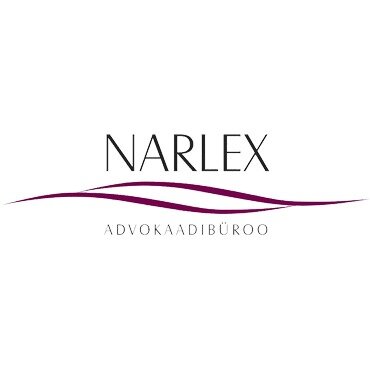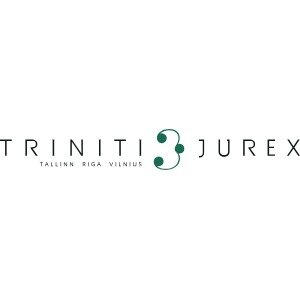Best Conveyancing Lawyers in Estonia
Share your needs with us, get contacted by law firms.
Free. Takes 2 min.
Free Guide to Hiring a Real Estate Lawyer
Or refine your search by selecting a city:
List of the best lawyers in Estonia
About Conveyancing Law in Estonia
Conveyancing in Estonia refers to the legal process of transferring ownership of real property, such as land or buildings, from one party to another. The process is highly regulated and involves strict legal and notarial procedures to ensure that the transfer of title is clear, secure, and legally binding. In Estonia, a significant part of conveyancing involves the preparation and verification of necessary documentation, overseeing property searches, and ensuring that the property title is transferred without any encumbrances. Most transactions must be executed before a notary, making the process transparent and reducing potential for disputes.
Why You May Need a Lawyer
Although many aspects of conveyancing in Estonia are managed by notaries, there are several situations where hiring a lawyer is advisable. Legal professionals can help buyers and sellers understand complex contract terms, investigate issues with property titles, or manage disputes regarding boundaries or encumbrances. Lawyers are also helpful when handling purchases involving multiple parties, inheritances, or complicated property histories. If you are a foreign property buyer or involved in commercial real estate transactions, legal advice serves as an additional safeguard, ensuring compliance with Estonian regulations and minimizing risks.
Local Laws Overview
Estonia's Property Law Act and Law of Obligations Act are the main legal frameworks for conveyancing. Ownership transfers require a formal agreement and an entry into the Land Register, which is a public record of property rights in Estonia. All conveyancing agreements for real estate must be concluded and certified by a notary, who is also responsible for verifying identities and checking the property’s legal status. Payment arrangements are usually structured so that the purchase price is paid into an escrow account managed by the notary, further ensuring security in the transaction. Foreigners have the right to buy and own property with only a few exceptions, but additional procedures may apply for agricultural or protected land.
Frequently Asked Questions
What is the role of a notary in Estonian conveyancing?
A notary is required to certify all real estate purchase agreements, confirm the identities of the parties, check the legal status of the property, and ensure the transaction is lawfully executed. The notary also submits the application to update the Land Register.
Do I need a lawyer if I am buying property in Estonia?
While it is not mandatory, hiring a lawyer is highly recommended, especially for complex cases or if you are unfamiliar with Estonian law. A lawyer can review contracts, identify legal risks, and represent your interests.
How long does the conveyancing process take in Estonia?
On average, the process takes about two to four weeks, depending on the complexity of the transaction, the responsiveness of the parties, and the type of property involved.
Can foreigners buy property in Estonia?
Yes, foreigners can generally buy and own property in Estonia, with a few exceptions for agricultural and protected land, which may require additional permits or are restricted.
What taxes and fees are involved in property transfers?
Buyers should expect to pay notary fees, Land Register fees, and, in some cases, value-added tax (VAT) on new properties. There is no property transfer tax in Estonia.
What is the Land Register?
The Land Register is a public online record that details property titles, ownership, encumbrances, and mortgages. An update to the Land Register is necessary to complete the ownership transfer.
Is it possible to buy a property remotely?
Yes, it is possible to purchase property remotely. Estonian e-Residency and notarization by video or powers of attorney allow foreign buyers to complete transactions without being physically present.
How are property disputes resolved in Estonia?
Disputes can be resolved through negotiation, mediation, or, if necessary, litigation in court. Legal professionals can provide guidance and represent you throughout the dispute resolution process.
What should I check before buying property?
It is important to verify the legal title, ownership, encumbrances, debts, zoning information, and that the property matches the description in the Land Register. A lawyer or notary can assist with these checks.
Who is responsible for ensuring prior mortgages or debts on the property are settled?
The seller is typically responsible for settling any outstanding mortgages or debts before transfer. The notary will confirm these are paid off, and the property is free from encumbrances before registration.
Additional Resources
For more information and guidance on conveyancing in Estonia, you may contact:
- The Estonian Chamber of Notaries - provides notarial services and information related to property transactions
- The Estonian Bar Association - offers lists of qualified lawyers and legal advice
- The Estonian Land Registry Office - responsible for the Land Register and related queries
- The Ministry of Justice of Estonia - oversees property law regulations and legal reforms
Next Steps
If you are planning to buy or sell property in Estonia, begin by gathering all relevant documents and clarifying your objectives. Contact a qualified notary to understand the procedural requirements. If you anticipate complexities, consult a legal specialist in Estonian property law to review contracts and provide independent advice. Before concluding any agreement, ensure that title checks, property searches, and financial arrangements are thoroughly verified. Taking these steps will support a safe and efficient conveyancing process in Estonia.
Lawzana helps you find the best lawyers and law firms in Estonia through a curated and pre-screened list of qualified legal professionals. Our platform offers rankings and detailed profiles of attorneys and law firms, allowing you to compare based on practice areas, including Conveyancing, experience, and client feedback.
Each profile includes a description of the firm's areas of practice, client reviews, team members and partners, year of establishment, spoken languages, office locations, contact information, social media presence, and any published articles or resources. Most firms on our platform speak English and are experienced in both local and international legal matters.
Get a quote from top-rated law firms in Estonia — quickly, securely, and without unnecessary hassle.
Disclaimer:
The information provided on this page is for general informational purposes only and does not constitute legal advice. While we strive to ensure the accuracy and relevance of the content, legal information may change over time, and interpretations of the law can vary. You should always consult with a qualified legal professional for advice specific to your situation.
We disclaim all liability for actions taken or not taken based on the content of this page. If you believe any information is incorrect or outdated, please contact us, and we will review and update it where appropriate.
Browse conveyancing law firms by city in Estonia
Refine your search by selecting a city.















